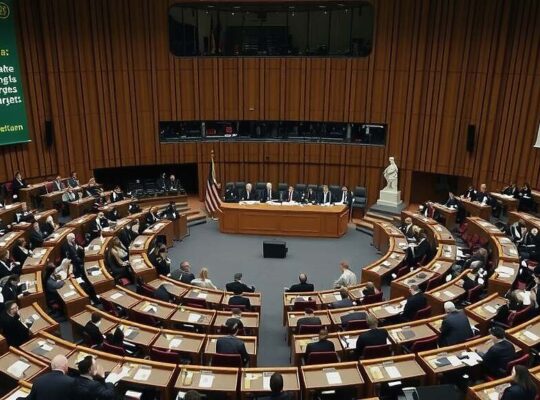A prominent political scientist is raising serious concerns about the potential implementation of citizen initiatives at the federal level in Germany, warning against the unintended consequences of direct democracy within a parliamentary system. Frank Decker, a professor at the University of Bonn, argues that while the impulse towards greater citizen participation is laudable, the current trajectory risks undermining effective governance.
Speaking to the “Rheinische Post”, Decker expressed skepticism regarding the viability of introducing a system akin to Switzerland’s model, where citizen votes frequently shape policy. He cautioned that such a shift could lead to a gridlock, forcing the government to preemptively adjust its policies to anticipate potential voter opposition – effectively transforming Germany’s political framework into a de facto coalition government.
The debate comes amidst growing pressure from the “Mehr Demokratie” association, which advocates for enhanced citizen participation and recently released a study evaluating direct democracy practices across German states. However, Decker’s critique extends beyond simply opposing citizen initiatives. He argues that the existing safeguards against broader participation are strategically designed to render them largely ineffective. “The hurdles are deliberately set so high that direct democracy practically never comes into play” he stated, accusing policymakers of offering false promises of greater citizen involvement.
The controversy surrounding Berlin’s recent decision regarding the future of Tegel Airport – where a citizen vote in favor of continued operation was disregarded – exemplifies the potential for public distrust. Decker condemned the move as “a mockery” of the democratic process, emphasizing the urgent need for a revised approach. He calls for a balancing act: lowering barriers sufficiently to allow for viable citizen initiatives, while simultaneously safeguarding the efficiency and stability of the political process.
Furthermore, Decker dismissed the “Volksentscheidranking” a system that assigns letter grades to German states based on the extent of their direct democratic practices, as “absurd”. He argues that the ranking fails to adequately consider the diverse political traditions and existing frameworks within each state, creating a misleading and ultimately unproductive measure of democratic engagement. He insists a more nuanced approach is needed, recognizing the complexities of integrating direct democracy without jeopardizing effective government.












